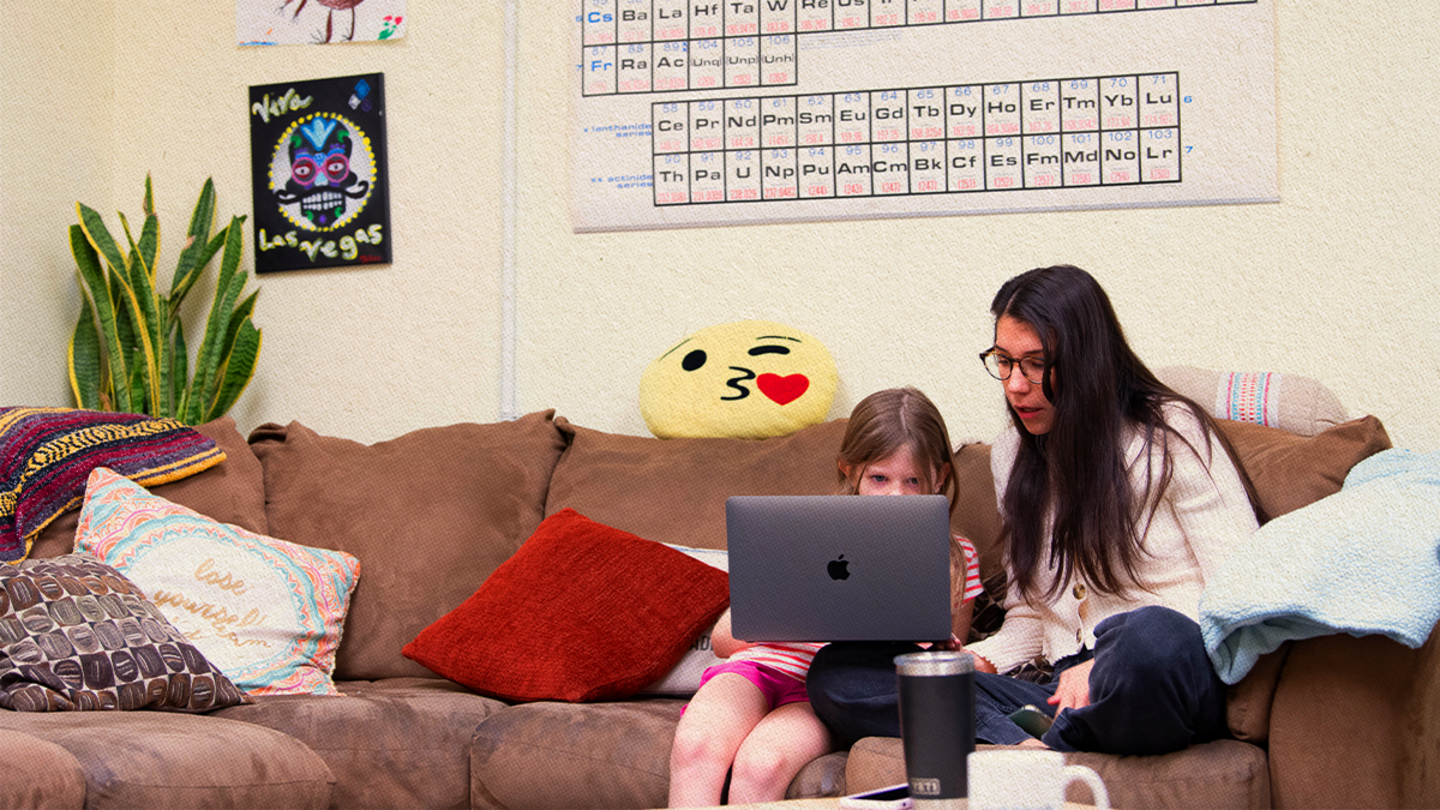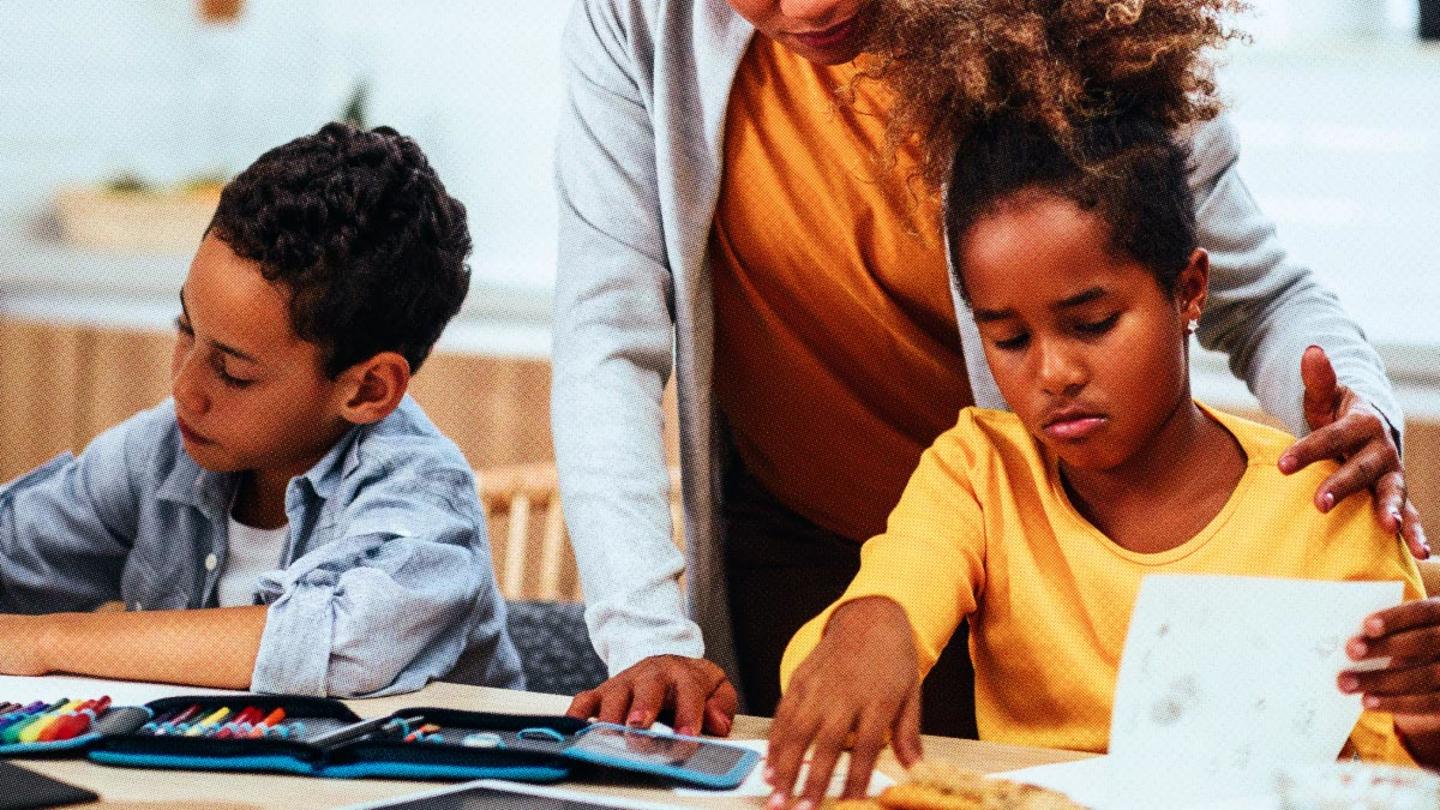Everyone can recall an event that changed their life. For homeschool co-op founder Alycia Wright, she can recall the specific word — one that, nearly 10 years later, would prove to change more lives than just hers.
“I was listening to someone talk about their childhood, and he used the word ‘delicious,’” Wright said, remembering it like it was yesterday. “And I remember thinking, ‘How beautiful would it be if I could create something kind of similar for my kids?’”
Whether by coincidence or by fate, the timing couldn’t have been better.
Like many parents, Wright and her husband had planned their family’s lives around their children’s education. They had chosen their neighborhood in Richmond, Virginia, because of the schools. “We live in a really great neighborhood,” she told Kerry McDonald, host of the LiberatED Podcast. “They’ve got top schools, top scores. We moved there for this reason.”
She expected to enroll her daughter in kindergarten, thinking it “was going to be this wonderful experience,” she said. But that’s not how it played out. Instead, she found school staff to be indifferent and unconcerned about her daughter’s unique gifts.
“It turned out to be really disheartening,” she told McDonald. Wright decided that this particular school would not serve her daughter well — not academically and not culturally.
With a background in education, Wright knew she could do better. She put her daughter in a private Montessori school for a few years, but it was cost-prohibitive when her other children were school-age. She decided to try homeschooling.
Despite having a master’s degree and 10 years of teaching experience, homeschooling her four children was nothing like teaching in a public school. Wright soon learned to shed her rigid public school training and focus on the needs of each child. She realized that in a homeschool, the curriculum can adapt to the needs of the students, not the other way around. Wright was able to make it a personalized experience for each of her children.
She also discovered that she couldn’t be everything for her children. Sometimes they needed other adults to give them educational experiences, so she started shopping around for a homeschool co-op. When none of them fit, she started one herself. “I had some other women that I knew who were homeschooling,” she said. “We just started getting together, and eventually, we ended up building a whole cooperative.”
In 2016 Wright formalized the relationship and launched the Cultural Roots Homeschool Co-op. Eight years later, the co-op is at capacity with more than 100 students from kindergarten through high school who meet two or three times a week. The co-op looks closely at individual circumstances, learning styles, and cultural touchstones and helps build an educational model that suits each child. Wright’s mission is now focused on helping others, including her children, find the individualized version of education that works for them.
Homeschoolers are not who you think they are. We have increasingly diverse homeschoolers in all parts of the economic spectrum, across the racial and ethnic spectrum.”
Dr. Michael McShane
Director of National Research, EdChoice
More flexibility and autonomy
The Wrights are one of millions of families in the United States who homeschool their children. The Washington Post says homeschooling has become the fastest-growing form of education since the pandemic, with somewhere between 1.9 million and 2.7 million homeschoolers nationwide. And while the surge has tapered slightly in the last year, the United States still has 51% more homeschoolers than it did six years ago.
Dr. Michael McShane, director of national research at EdChoice, said families have fallen in love with homeschooling because of the flexibility it provides. Many parents feel like the typical school day and week is out of sync with their children and their families. Homeschooling restores flexibility and autonomy. “When you have more flexibility, when you have more of that one-on-one attention, you can find a school day and week and year that fits the rhythm of the child and the family,” he said.
The Post notes that homeschooling has become popular across “every measurable line of politics, geography, and demographics.” McShane confirmed this. “Homeschoolers are not who you think they are,” he said. “We have increasingly diverse homeschoolers in all parts of the economic spectrum, across the racial and ethnic spectrum.”
He said the main thing these families have in common is that “they want their children to thrive,” and what that looks like might be different for every family.
“We’re seeing now more things like homeschool co-ops,” he said, pointing to Wright’s Cultural Roots Homeschool Co-op as just one example. “These are different homeschooling families who come together. They pool resources. Some of it’s instructional. Some of it’s more what we would consider to be extracurricular, but that’s this kind of blending, where we’re actually seeing homeschooling building strong, cohesive communities.”
Developing a love for learning
For Karla Withrow, who opted to start homeschooling during the pandemic, she knew her son needed social interaction and outdoor play.
Her son was supposed to start kindergarten in the midst of quarantines. “I was really uncomfortable entering [him] into the public school system on Zoom,” said Withrow. “Then it started to get to me that he was just here at the house. I decided to call my friends. I said, ‘Let’s meet at the park, and I will instruct. Then they can play, and they can just get together weekly.’”
Those weekly meetings eventually became EarthChild Explorers, an exclusively outdoor homeschool co-op that uses nature to teach literacy, math, science, social studies, and the arts to students in preschool, kindergarten, and first-third grade.
Withrow described the parents of her students at EarthChild. “They want what’s best for their kids,” she said. “They want them to play. They want them to develop a love for learning.” And she has definitely noticed the increasing demand for these non-traditional education models. “There’s such a huge community of homeschool families meeting and coming to co-op groups like mine or other groups,” she said.
McShane emphasized this point, as well. “There is no one educational modality that is the solution for every child,” he said. “What I think we should be working on is trying to find the learning environment that best meets the needs of the child.”
Sign up for Stand Together's K-12 newsletter and get stories, ideas, and advice from changemakers who are transforming education across the country.
Freedom to choose the right learning environment
There is no one-size-fits-all education model. Homeschooling isn’t right for everyone, and neither is traditional public education. Parents want flexibility to choose the learning environment that best meets the needs of their child.
For Wright’s children, homeschooling and the co-op have been the best option. For example, early on, Wright saw that her oldest daughter was an accelerated learner, and the school system wasn’t going to appreciate or challenge that gift. Homeschool gave her daughter room to grow. She was done with high school by the time she was 14, went to college at 15, and graduated with two bachelor’s degrees when she was 19. “Homeschooling really allowed her to personalize things,” Wright said in her interview with McDonald.
Homeschooling has allowed Wright to get to know each of her four children as individuals. “I think that I’m much more in tune with each of my children. I love that we get to spend so much time together,” she said. “I think we all want those connections, It’s just that we get so caught up in the hustle and bustle of everyday life.”
For Withrow, time with her children has been the best part. “Being with my kids has been a dream,” she said. “Watching as they become really excited about learning is exactly why homeschooling has become right for our family.”
Cultural Roots Homeschool Cooperative and EarthChild Explorers are supported by VELA, which is part of the Stand Together community and supports everyday entrepreneurs who are boldly reimagining education.
Learn more about Stand Together’s K-12 education reform efforts.

Here’s what happens when AI replaces teachers.

Four suggestions for policymakers and education influencers wanting better choices for families.

Emily Niehaus didn’t expect to be a school founder. Now, she wants others to learn from her journey.

American childhood has changed. Here’s what we can do to bring back the magic.
